Dame Stephanie Shirley CH
This week on Small Talk, we sat down with Dame Stephanie, a workplace revolutionary and successful IT entrepreneur turned ardent philanthropist.to chat about overcoming pains from our past, learning to let go, and the gift of giving.
Her-Story
Dame Stephanie’s story is both inspiring and impressive, having been a child refugee to starting FI Group, a woman-led software company, vanquishing the expectations of the time. FI Group was ultimately valued at almost $3 billion, revolutionizing how women are seen in the workplace.
Her accomplishments leave us in a state of awe, and we are left to wonder, was she born with it?

“I do believe that it was innate, in that my birth family and my foster family were not even remotely interested in tech. My foster father was involved in business, and I’ve often wondered if he had a strong influence on me, but I think not. I always had a keen interest in mathematics, and I had to change schools twice to get the tuition.”
In the 1950s, mathematics and science courses were not offered to women. "Botany, the study of plants, was the nearest one got." Having fallen in love with mathematics, Dame Stephanie changed her allegiance when computers came along, finding the perfect combination of maths and science within computing.

“I had fallen in love with computers, and I’ve never really looked back. The joy was that in the early days, and I’m talking about the mid-1950s, computers did actually need mathematics if you were going to use them. So, it was a very natural progression.”
Having followed her passion and talent into computing with relentless perseverance, Dame Stephanie is now globally recognized as an information technology pioneer and surely one who has influenced and impacted how the world works and operates today.

“I soon realized also that it’s one thing to want to be a mathematician, to enjoy the beauty of mathematics, and really revel in its symmetry and potential, but it was quite different from being able to contribute. And I realized I didn’t have the sort of brain to contribute, whereas, in computing, I feel that I have made some progress and was able to move some things along and do some things that other people couldn’t.”
As mentioned in many of our interviews, the world often sees our successes yet fails to acknowledge the sacrifice and laborious efforts behind the scenes. For Dame Stephanie, this couldn’t be closer to the truth.

After working in a Post Office research station, building computers from scratch, and writing code in machine language, Dame Stephanie enrolled in evening classes for nearly six years to obtain an honors degree in mathematics. In 1962, after her marriage, Dame Stephanie founded, with a capital of six pounds, the software company ‘Freelance Programmers.’
Thrive
Dame Stephanie is both an idol and icon for countless women in the business environment. Having founded a primarily female-run IT company in 1962, a time in which women were not acknowledged in said industry, Dame Stephanie then grew her company to the point of global recognition.
We wanted to know some of the challenges she faced after stepping foot into a male-dominated industry and what the driving force was behind the efforts that allowed her to persevere and thrive.

“Well, the sexism was pretty strong and pretty nasty, and all-pervasive, which really made it very difficult. However, I was in the computing industry right at the beginning of the growth curb, so the market was with me. I recognize that the market helped me, and it wasn’t just me being clever.”
Due to her countless experiences with sexism in the workplace, Dame Stephanie focused her attention on creating job opportunities for women.

“What I set up in business was more of a crusade for women, rather than the idea of making serious money, or making any money for that matter. In fact, it was 25 years before we paid a dividend. But you measure success in different ways, and I measured it in how much employment I was creating. I measured success in the way in which I could distribute employment to people who were not otherwise able to earn, unmarried mothers, single parents, and so on.”
By looking at success as a form of contribution and evolution, as opposed to a form of income, we allow ourselves to not only change our lives for the better but change the world and the workplace.

“That crusade for women was much more important than the idea of making money, and that was a mission that held until 1975 when the Sex Discrimination legislation came in. So, we had to start recruiting men, and the intake then became about 50/50. We finished up pretty well like any major corporation in the UK, with 80 /20 percent staff ratios. But in our case, the 80 percent was female, and the 20 percent was male.”
With determination, drive, and a strong desire to make a lasting impact for women in the tech industry, Dame Stephanie’s crusade was destined to withstand the challenges that they would some come to face.
From 1973-1975 the UK and much of the Western world were faced with a recession. The 1970’s recession was a period of economic stagnation, resulting in a high unemployment rate and even greater inflation rates.

“When things went wrong, the crusade really stood us in good stead because I was so keen not only not to fail myself, but I realized that unless I could make it work, I would fail a lot of women. I felt responsible for them. I was not going to let the market take me down when it went down in the 70’s recession. So, I think pride kept me going.”
When our hopes and dreams hold more power over our fears and doubts, the human spirit shows us what it is truly capable of. With not only herself but her team in mind, Dame Stephanie was successful in her efforts, thus overcoming the difficulties of the 1970’s recession.
Women & Workplace
Much has changed over the years for women in the workplace. From our 1962 to now, many of the barriers that once stood in the way for women have been lifted. Yet, there are still indisputable challenges that women face, challenges that need addressing.

“After the early struggles, many of the obstacles, the legal obstacles have all gone. When I started as a young adult, women were disallowed from certain jobs; you couldn’t work on ships, you couldn’t work on the stock exchange, you couldn’t drive a bus, and you certainly couldn’t fly an airplane. More importantly, you were sort of disbarred from most financial transactions; I couldn’t even open a bank account without my husband’s authorization. It’s only one generation back that women were second class.”
With laws now permitting women to partake in jobs that were once considered forbidden, we can appreciate that we have come a long way in such a short time. Yet, as mentioned in our interview with Khristina Williams, being a woman in the workplace doesn’t come without struggles.

“But now, we are left with cultural issues that are much more difficult to address. When there is a culture of bullying or a culture where men don’t serve as mid-wives, these attitudes become so pervasive in society. I think in the Western world, things have improved enormously. But worldwide, there is still violence against women in various ways, and some of the cultural issues are still quite strong.”
In North America and much of Europe, women have been given equal human rights such as freedom of speech, freedom of education, and the right to dress how they choose. Yet, in much of the world, there are still cultures that do not permit women to be considered equal or worthy of acknowledgment of any kind.
It is within these cultures where pain and turmoil still reside, and until women worldwide are considered equal, all women, all over the world, will suffer.

“I’ve learned really to take my crusade for women, which is still active, and to apply it to cultural issues and to the diversity that so many people still face, whether due to colour or gender.”
We are not free individually until we are all free collectively. If we could begin to follow Dame Stephanie’s lead, applying our morals, values, and right acts to better society, we would soon find ourselves living in a more inclusive, fair, and free world.
Gift of Giving
Dame Stephanie is actively involved in philanthropy. She is the founder of Autistica, a foundation that supports cutting-edge research on autism and related conditions, and has donated more than 67 million pounds of her personal wealth to different projects.
They say that giving is the greatest gift we can receive, and in helping others, we ourselves become helped.

“You started off referring to my fairly traumatic start as an unaccompanied child refugee, and that left me with certain very strong drivers, but it also left me without the feeling of entitlement to certain fortunes. I felt that it wasn’t luck. I needed to justify that I had survived when so many had died, including one million children that had died in Europe. And that left me with a sort of guilt. It is called survivor guilt.”
With Dame Stephanie’s family being torn apart during the Nazi regime, she found herself sent off from Germany to Britain as a Kindertransport child refugee at the age of five. Although she and countless others recognize their good fortune in being rescued from such unruly circumstances, a sense of guilt and depression often accompanies the recognition of luck.

“Certainly, I had years of analysis to get me through the survivor guilt, but it left me quite clinically depressed. Whereas now, I’m a very happy person. Somehow, giving and giving back to society has given meaning to my life, to a life that was saved, and that happiness is immeasurable.”
When we are faced with feelings of guilt or shame due to our past or our present circumstances, we come to find that within the act of giving, our troubles become lifted and lessened.

“I also find that since working in philanthropy, I’ve learned a lot about the world. I’ve traveled a fair bit and Zoom gives me a sense of connection to far-flung places like India and Chile. Perhaps that’s given me more empathy with the rest of the world. It’s so easy to think that everyone should be like us. But I like to think that philanthropy has broadened my perspectives; perspectives about money, what it can and does do for you; perspectives about the world, and in particular, perspectives about people. I don’t take my good fortunes for granted.”
The old saying, ‘step into their shoes, is a beautiful reminder that our perspectives on life and the world are our own. Someone on the other side of the room and on the other side of the world may see things very differently than we do. When we broaden our perspectives, we inevitably begin to broaden our horizons, and our potential to impact, empathize, and understand is thus amplified.
Let It Go
We know that giving is an act that brings meaning and purpose to our lives, but another fundamental way of releasing our pain from the past and honoring who we’ve been and what we’ve been through is the act of releasing, letting go.

Dame Stephanie is the author of ‘Let it Go’ and ‘So to Speak.’ ‘Let it Go’ is a personal memoir that recounts her extraordinary story, from child refugee to entrepreneur, to philanthropist. And ‘So to Speak’ is an anthology of some of her 30 speeches, themed to cover all aspects of her life - her refugee start, her woman's software company, her sons autism and the latter years as a venture philanthropist. Plus women in management, in STEM and in society generally.

“The phrase, ‘Let it Go,’ really comes from the Buddhist principle of starting each day afresh, not letting the rancor of the past affect your mood towards the future. You have to get rid of that anger, all the things that go wrong, all of the cruelty, you have to let it go.”
With all earnings from her books and speaking engagements going towards Austistica, her charity. Dame Stephanie has given the world inspiring and uplifting pieces of work whilst gifting proceeds to the study of autism and related conditions.
May this serve as a beautiful reminder that we emerge unbounded and free when we let go of the chains that once bound us.
Best Advice

“You need to stand out from the many other people. You need to make yourself special.”
Dame Stephanie is, without a doubt, an impressive and impactful woman. Having gone through all that she did, to then emerge with such success in her career and a smile to go with it, leaves us longing for her formula.

“My advice is not only for women but for all people. If you seek to be an entrepreneur, you have to think big. All that effort is not worth it unless you can make something that’s stable, something that lasts, something worthwhile. I think you need to share success very early, or else you have no way of developing. Also, you must concentrate on things that you really care about. It’s doing something that you care about, something that makes work worth getting up for each morning.”
No Longer Pursue

“I suppose I used to chase beauty to a certain extent. I would spend more of my time on my appearance, more worry, and more energy on my appearance than I do now. It’s one of the advantages of age; you really don’t care so much.”
What Does ‘Contribution’ Mean to You?

“Giving. I’m enormously and continuously grateful for the religious groups that got my sister and me out of Nazi Europe. The Jewish people who actually set it up, and the catholic church; there’s a whole group of people that just forgot their differences and saved 10,000 children, and I was one of them.”
100% True?
We asked Dame Stephanie what she believes one-hundred-percent to be true, her answer...

“The truth will prevail, and that honesty pays. Certainly, I’ve found that in business. There are quite a few business people on the fringes of ethical behavior, and in the long run, I don’t think it holds them in good stead. So, I do believe that honesty pays, and the truth will prevail.”
At TrooMe, we believe that the difficult times we’ve faced in our lives can serve as beautiful lessons and reminders of how far we’ve come, and within the act of letting go, we become free.
May we follow in Dame Stephanie’s footsteps, standing for what we believe in, contributing to society wherever and whenever we can, and forging our paths towards a more just and inclusive future.
Dame Stephanie Shirley CH is a workplace revolutionary turned venture philanthropist. A serial entrepreneur, in 1962 she set up a disruptive software business originally biased towards women that she took to co-ownership making 70 of her staff into millionaires; and later four charities (taking three to sustainability and together employing over 1000
people). Every penny Dame Stephanie receives from sales of her books, Let It Go and So To Speak , goes to Autistica - order via www.steveshirley.com .
Follow Dame Stephanie on Instagram
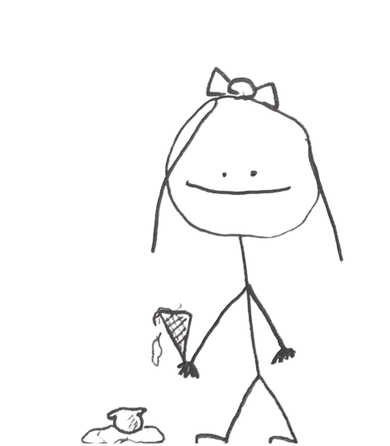
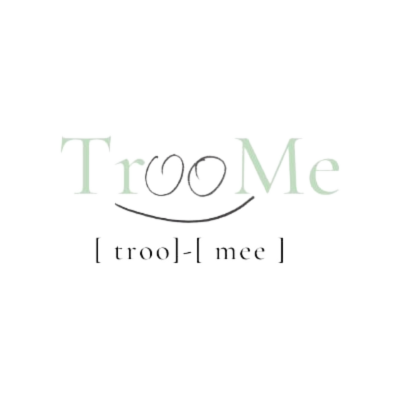
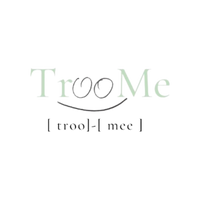
Leave a comment